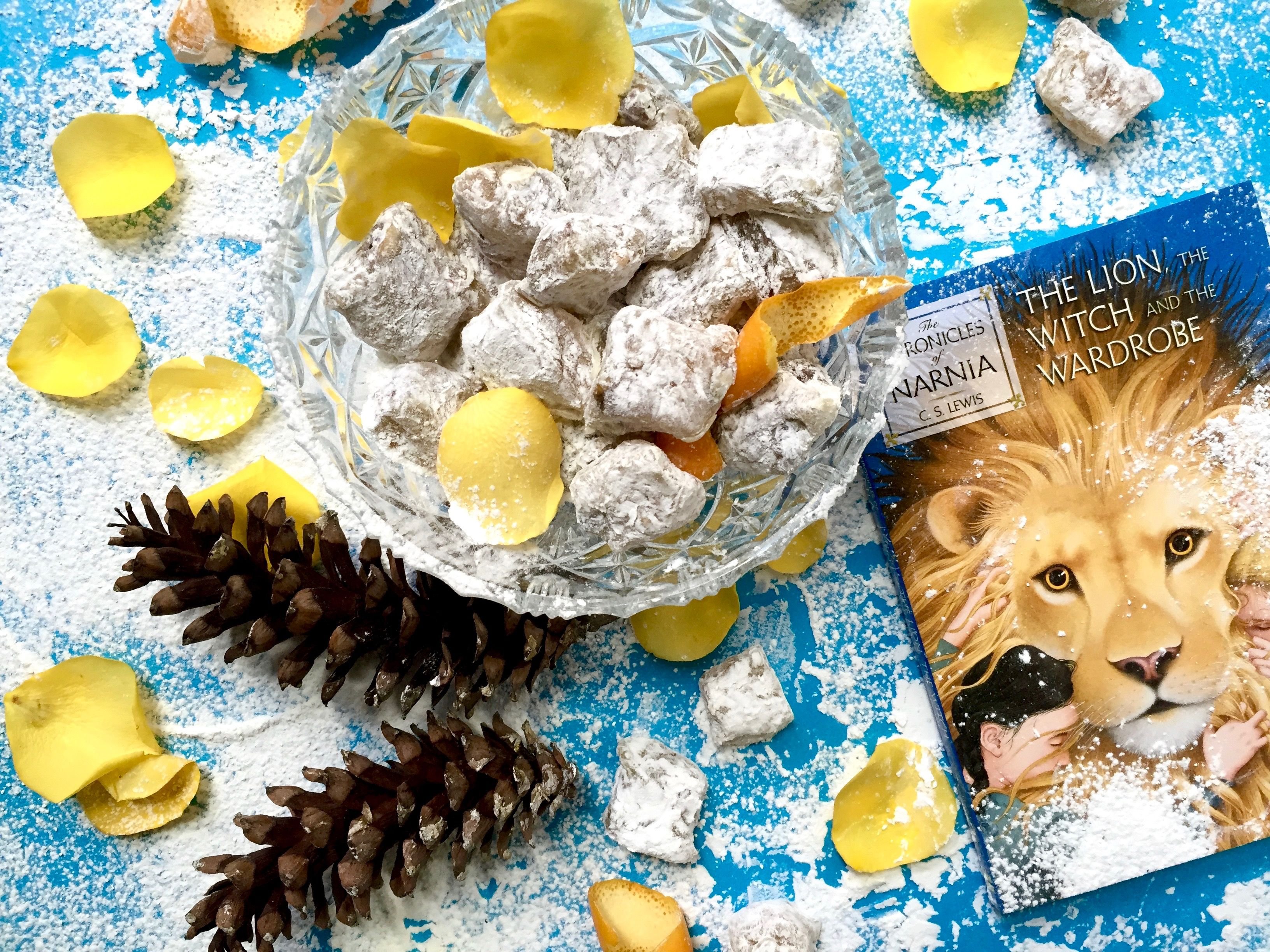
In C.S. Lewis’s The Lion, the Witch, and the Wardrobe, somewhere between the lamppost and the Eastern Sea, near the great castle of Cair Paravel, you can find many delicious dishes: A faun serves up toast, sardines, tea, and cake. Beavers and children discuss how to escape a witch over trout, buttered potatoes, and a gloriously sticky marmalade roll. Foxes and squirrels enjoy a plum pudding from Father Christmas; and then of course, most famously, there’s Turkish delight—so magical you could eat to your death for wanting it. This is the Kingdom of Narnia.
But why is the witch so mean? Well…she’s afraid of an old prophecy that says four human children will arrive someday and end her rule. So you can imagine what happens when she finds a small boy named Edmund near a lamppost in the snow….
Poor Edmund. Minutes later, he’s seated next to the witch eating her enchanted Turkish delight. There, with sweetness in his mouth, he falls prey to his own selfishness, betraying his siblings for more candy and a crown.
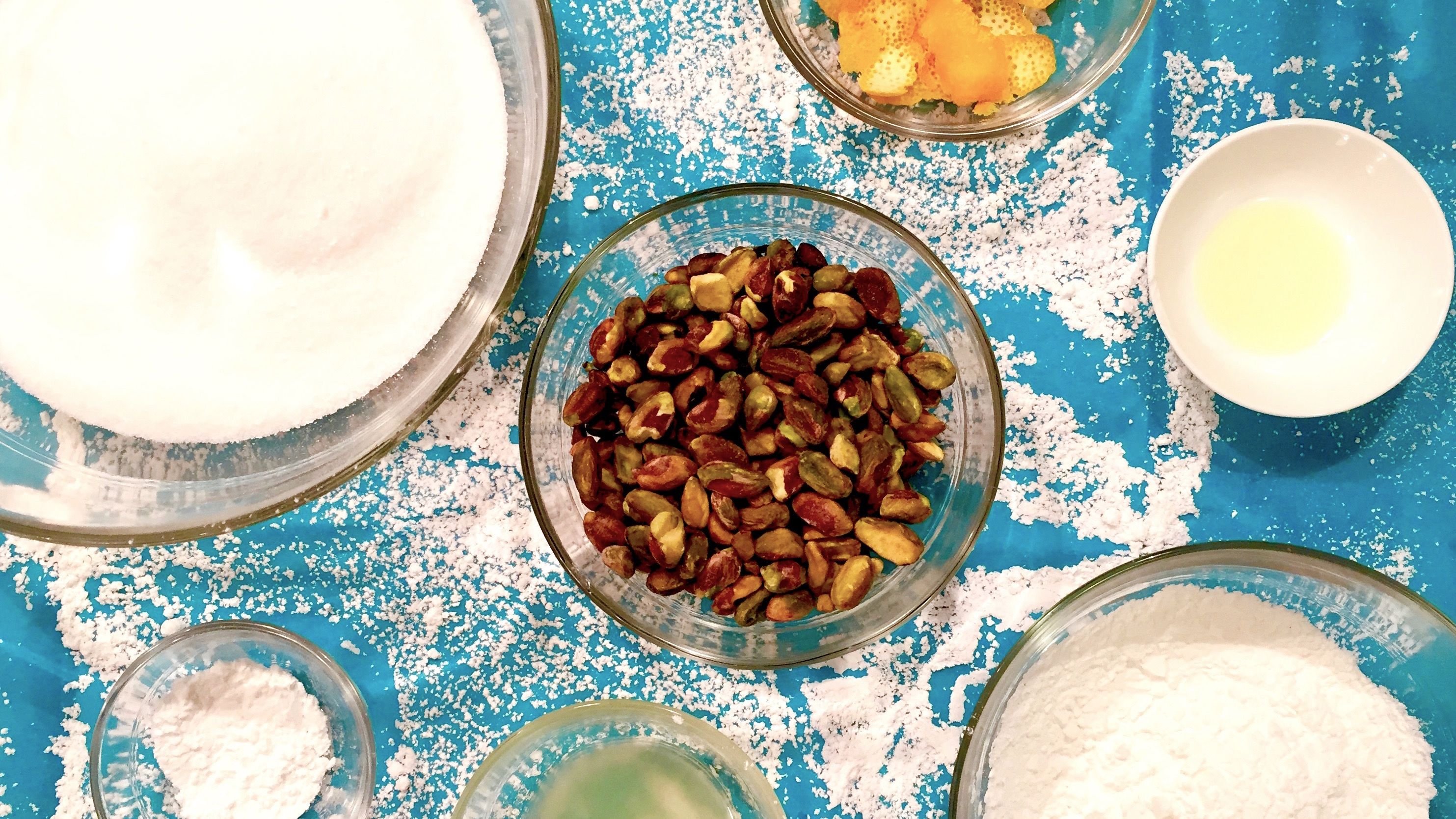
Under the Spell
No reader can escape the magic of this scene, and afterwards we are filled with questions. Will Edmund be under a spell forever? What will happen to his siblings? Is Turkish delight real? And if so, what does it taste like?
To know the splendid fate of Narnia and its characters, one must read the book. But I can at least attest that Turkish delight, or lokum, is in fact real and has an interesting story of its own.
Tradition has it that lokum was invented in the Ottoman Empire in the late 18th century by Hacir Bakir, a confectioner and candy-shop owner. One hundred years later, an unknown Brit traveling through Turkey began sending home boxes of Bakir’s lokum labeled as “Turkish Delight.” Soon it was all the rage amongst the wealthy, who wrapped it in silk handkerchiefs to give as gifts.
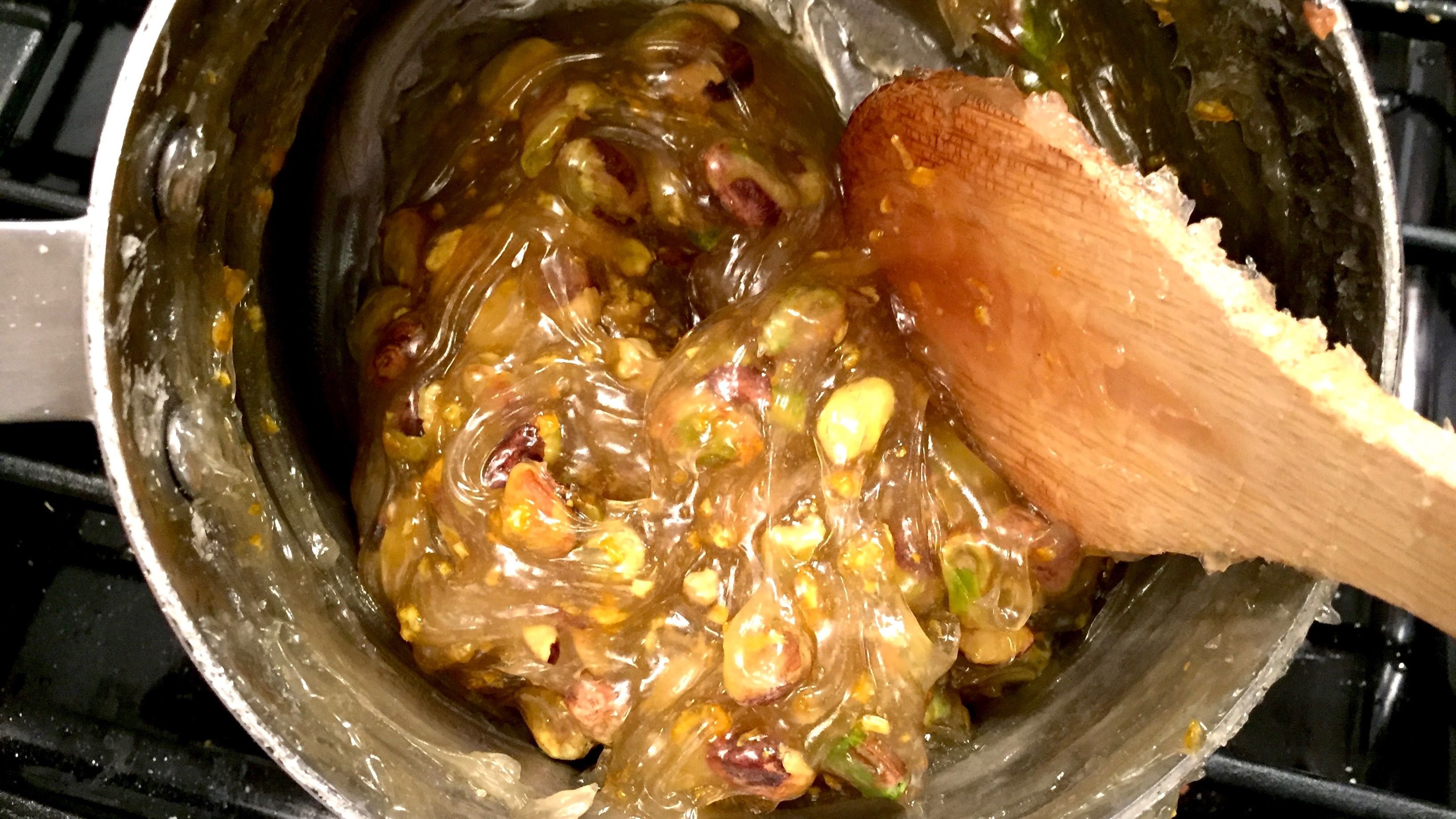
Why Did C.S. Lewis Write About Turkish Delight?
At the time of the story’s British publication in 1950, children old enough to read the book knew all too well how precious anything sweet could be. The Second World War had ended only five years before, and many had experienced the rationing of sugar. For them, Turkish delight would have been the ultimate sweet temptation. A perfect delicacy for a writer to imbue magical qualities.
But how does it taste? Many have never tried Turkish delight, and when they read the story their imaginations create endless possibilities—pastries, meats, candy, ice cream, cakes. For those who have tried it, some are gravely disappointed by commercial, rose-flavored versions that feel like eating chewy soap. But if it’s good...it’s like a gummy-fudgy bliss of many flavors.
I couldn’t help but wonder if I could make Turkish delight at home. I had done plenty of candy making and pastry making. It had to be easy, right? Unfortunately, finding a recipe that would suit home cooks was a challenge. After four failures using online recipes and research, I began to believe that Turkish delight was indeed made of magic and could only be found in fantastical stories, miraculously created out of snow.
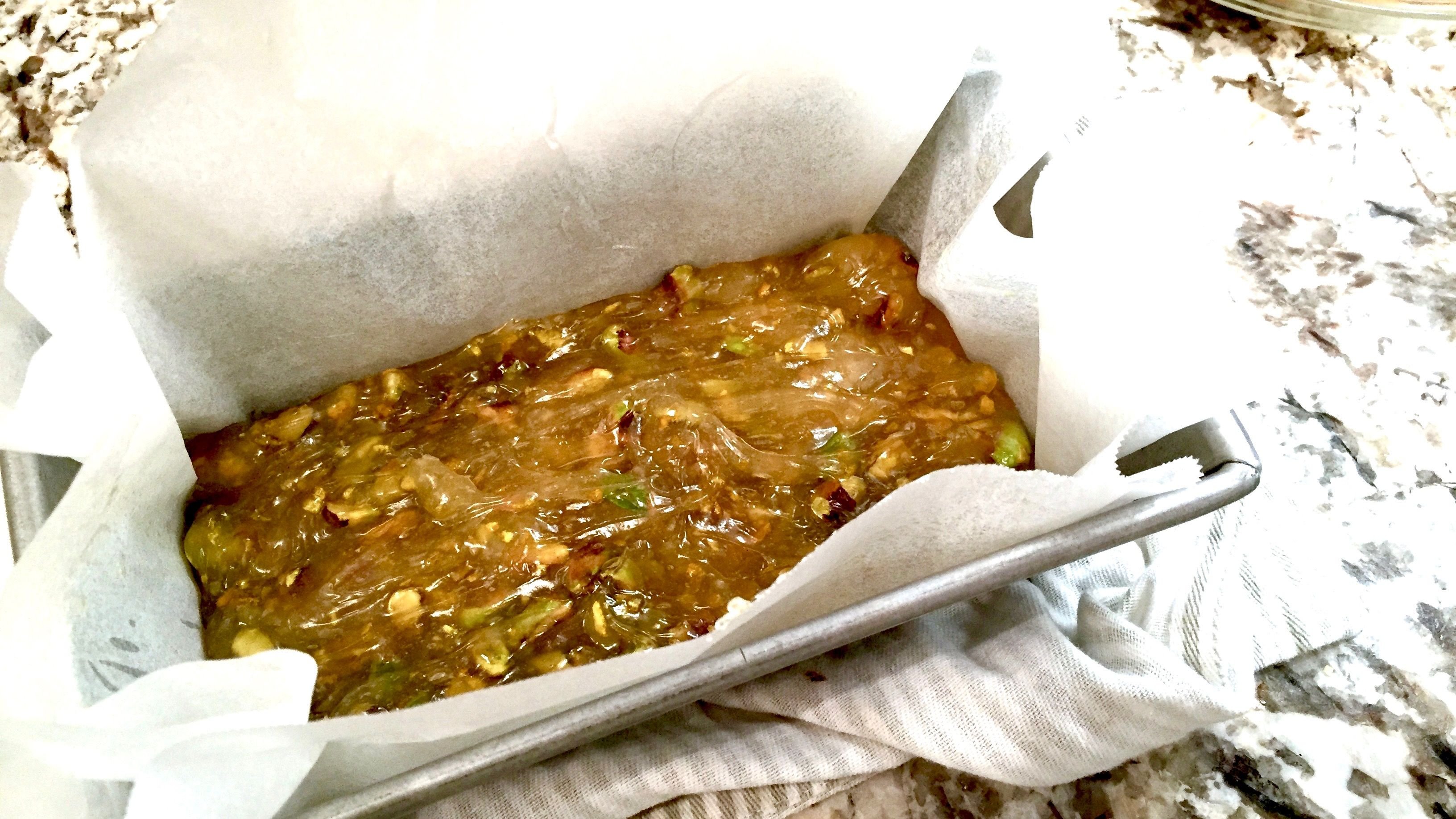
The Love of a Grandfather
In between my attempts, I nursed my love for the book. I reread certain parts: how winter melted into spring when Narnia’s true leader returned; how the beavers seemed to fit so much into their snug little house! How the deepest magic comes from loyalty and self-sacrifice. I even shared the dedication to C.S. Lewis’s goddaughter with friends and family:
My Dear Lucy,
I wrote this story for you, but when I began it I had not realized that girls grow quicker than books. As a result you are already too old for fairy tales, and by the time it is printed and bound, you will be older still. But some day you will be old enough to start reading fairy tales again. You can then take it down from some upper shelf, dust it, and tell me what you think of it. I shall probably be too deaf to hear, and too old to understand, a word you say, but I shall still be your affectionate Godfather.
C.S. Lewis
However, all of this research and activity didn’t help me in the kitchen as I tried to find a successful recipe for home cooks. But thanks to a little magic I call “pretend you’re Julia Child and do it until you get it right,” I was finally able to succeed. I suggest you try if you’re an adventurous sort who loves to give surprises to readers. Just think how fun it would be to have kids reading The Lion, the Witch, and the Wardrobe, and then voilà, you present them with a dish of Turkish delight to try. Beware though…they may eye you with suspicion. After all, Edmond did have a real time of it.
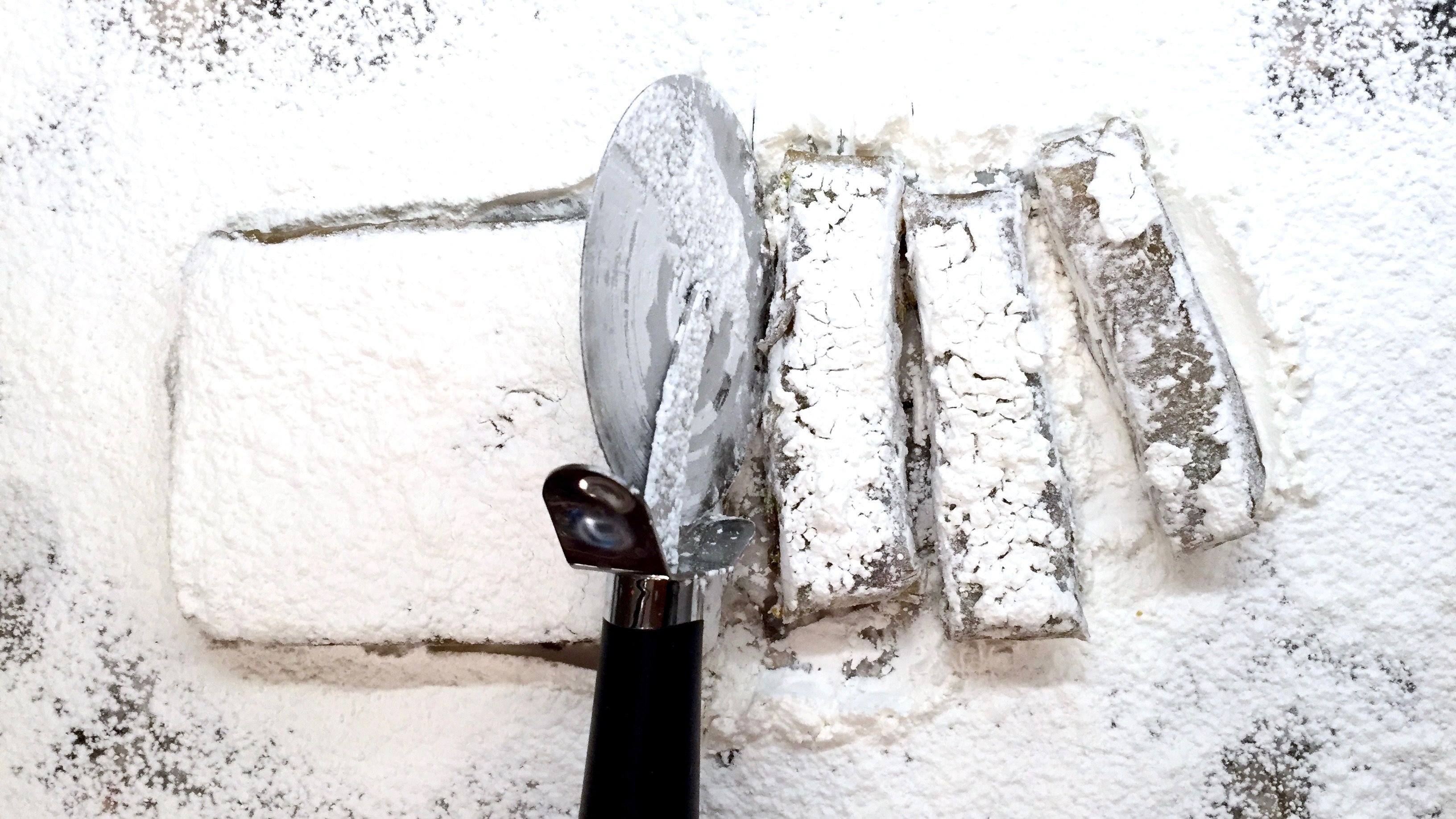
Creating Magic Out of Sugar
Turkish delight is a candy confection, created out of sugar and starch. I love citrus and nuts together, but you can also come up with your own flavor combinations. However, avoid completely any type of fruit (even pomegranate seeds), which will make your mixture too wet and keep it from setting up properly.
Some recipes call for food coloring. If you choose to use coloring, I suggest using a brand like India Tree, which uses natural vegetable colorants (red cabbage, beet, turmeric) to create their colors.
Finally, one last bit of advice: The cooking of Turkish delight is an adult’s task. Cooking with sugar can be very dangerous. Be careful to not get any sugar syrup on your skin. There is NO dipping your finger into the saucepan to see how it tastes. You will get quite a burn.
However, the cutting and dusting of the delight is definitely kid-friendly and fun—a perfect opportunity to chat about the book. For example: the dusting powder looks like snow, and the White Witch created her delight out of snow. Enjoy!
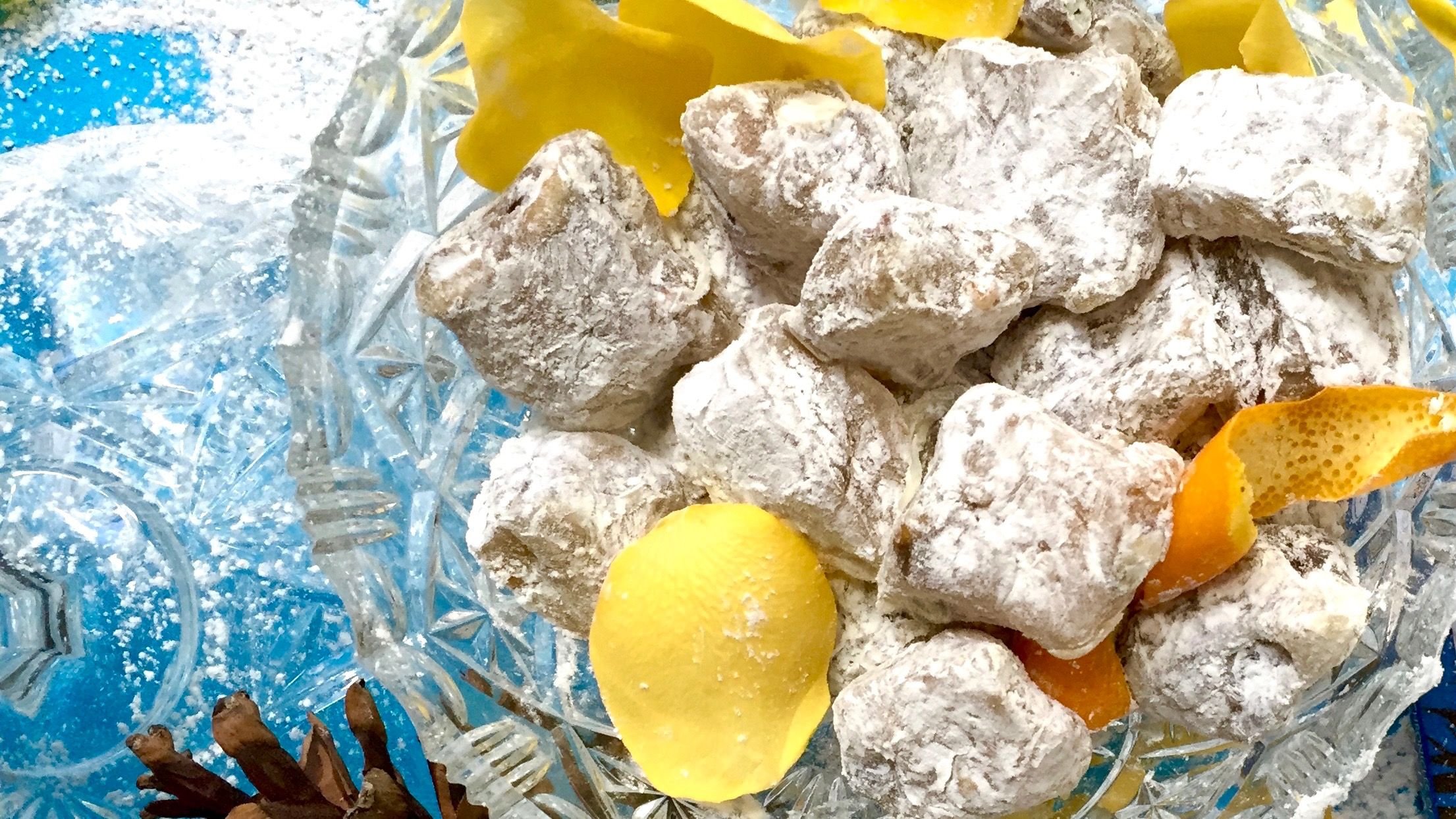
Orange and Pistachio Turkish Delight Recipe
Makes about 36 small pieces.
Recipe by Elise McMullen-Ciotti
Ingredients
1 3/4 cups white cane sugar
1 teaspoon of cream of tartar
2 teaspoons lemon juice
2/3 cup water AND 3/4 cup water
1/3 cup corn starch
1/2 teaspoon of orange oil
1 1/2 cups of skinned/shelled pistachios
Minced orange peel from one orange
2 cups dusting mixture (equal parts corn starch and powdered sugar)
1 spray bottle of vegetable oil (for greasing pan)
Tools
Timer
2 saucepans (4-6 cups)
Whisk
Wooden spoons for mixing
Pizza cutter
Rubber spatula
Medium sieve
3 small prep bowls (each needs to hold 1-2 cups)
Candy thermometer (a digital thermometer as well if possible)
Chopping knife
Y-peeler
Measuring cups and spoons
Loaf pan
Parchment paper
Pro Tip: Since this recipe requires very precise timing. Prepare all ingredients in small bowls before you begin and keep your workspace free of clutter and distractions.
Method
- Grease a small loaf pan and line it with parchment paper. Grease the parchment paper as well and set aside. Fold paper to allow it to sit squarely in the pan. Make sure it is enough paper to have it sit taller than the edge of the pan.
- Use a Y-peeler to skin an orange. Mince the peels with a chopping knife and set aside in a bowl.
- Place sugar, cream of tartar, lemon juice, and 2/3 cup of water in a saucepan with a candy thermometer attached and stir over medium heat until sugar dissolves. Bring to the boil. Cook for 10 minutes or until syrup reaches 240°F (soft ball stage) on your candy thermometer. (If you have a digital, infrared temperature gun, use it to check temperature as well to confirm your thermometer reading.)
- Remove from heat and set aside.
- Place cornstarch and 3/4 cup water in your second saucepan and whisk until the cornstarch dissolves. Place over medium heat and cook, stirring vigorously, for 2 minutes or until mixture is the consistency of glue. Cook for a further 5 minutes, or until mixture starts to come away from the sides of the saucepan and resembles thick and smooth mashed potatoes. It’s important to remove from heat every few minutes and stir vigorously to avoid lumps.
- Remove from heat.
- Add 1/2 cup of your sugar syrup to corn starch mixture at a time, stirring after each addition until all is fully incorporated. Place over low heat and cook, stirring occasionally, for 1 hour or until a golden amber color and mixture starts to form a ball when stirred. Remember that stoves can give off different levels of heat on low settings. I have a gas stove and I found that a medium low to low flame was the best temperature. As the mixture starts to thicken, stir more frequently. I like to use a timer and stir every 10 minutes. (This is a great opportunity to sit nearby and read while you wait for your 10 minute “ding!”)
- Remove from heat.
- Add orange oil, orange peel, and pistachios. Mix well.
- Pour into your greased and parchment-lined loaf pan. Spray the back of a wooden spoon with oil and use it to press the mixture into the corners of the pan. Drop the pan on the counter to settle mixture and remove any air pockets. Cover the top of pan loosely with another small piece of oiled parchment paper.
- Let cool overnight. (Cooling needs 6-8 hours at room temperature. It is best to let it cool in room temperature and NOT the refrigerator to prevent condensation.)
- When you’re delight is fully cool, and you are ready to cut and serve, mix together 1 cup powdered sugar and 1 cup cornstarch in a bowl. Spoon into a small sieve and dust a clean and dry surface generously with the mixture.
- Turn out your delight onto the powdered surface. Dust a pizza cutter also with your mixture and use it to cut 1-inch cubes. Toss the squares liberally in any remaining dusting mixture until coated well. Now they are ready to serve!
- Your delight can be stored in an airtight container in a cool place for up to 1 month.
All images by Elise McMullen-Ciotti, TheGalavantGirl

